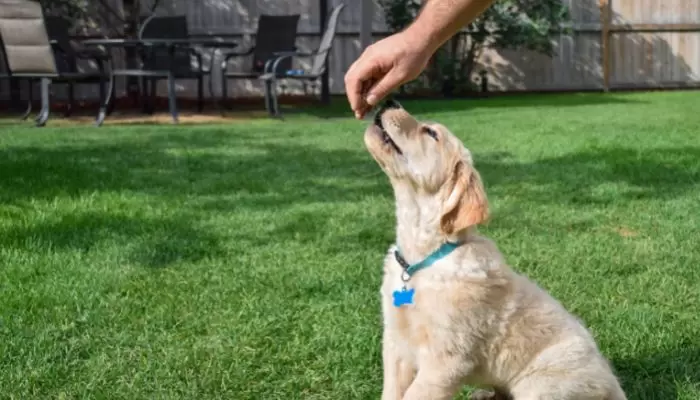
For anyone who’s ever had a puppy, you know that those sharp little teeth can do some damage! And while it’s all part of the fun of having a furry friend, you may be wondering when your pup will finally lose those baby teeth. Here’s everything you need to know about when golden retriever puppies lose their baby teeth.
Most golden retriever puppies start to lose their baby teeth between 4 and 6 months of age. However, some may lose them as early as 2 months or as late as 10 months.
The baby teeth will be replaced by permanent adult teeth sometime between 6 and 12 months of age. Most puppies have all their permanent teeth by 10 to 12 months old, but occasionally a few puppy teeth may still be in the process of being replaced at 18 months old.
Puppies are born without any teeth, but those razor-sharp chompers start to come in around 4-6 weeks old. By the time they’re 8 weeks old, most golden retriever puppies will have a full set of 28 baby teeth. So, if you’ve been dealing with a mouthful of needle-like teeth for a few weeks now, hang in there — the teething stage won’t last forever!
Around 3-4 months old, your pup will start to lose their baby teeth as its adult teeth come in. By 6 months old, most golden retrievers will have a full set of 42 adult teeth. And while you may be relieved to see those pesky baby teeth go, don’t be surprised if your pup starts chewing on everything in sight during this teething period! Providing them with plenty of chew toys and treats can help ease their discomfort and deter them from gnawing on your furniture.
Conclusion:
So, when do golden retriever puppies lose their baby teeth? Around 3-4 months old as their adult teeth start to come in. And while you may be glad to see those little needles go, remember that your pup will probably start chewing on everything in sight during this teething period! Providing them with plenty of chew toys and treats can help ease their discomfort and deter them from gnawing on your furniture.
